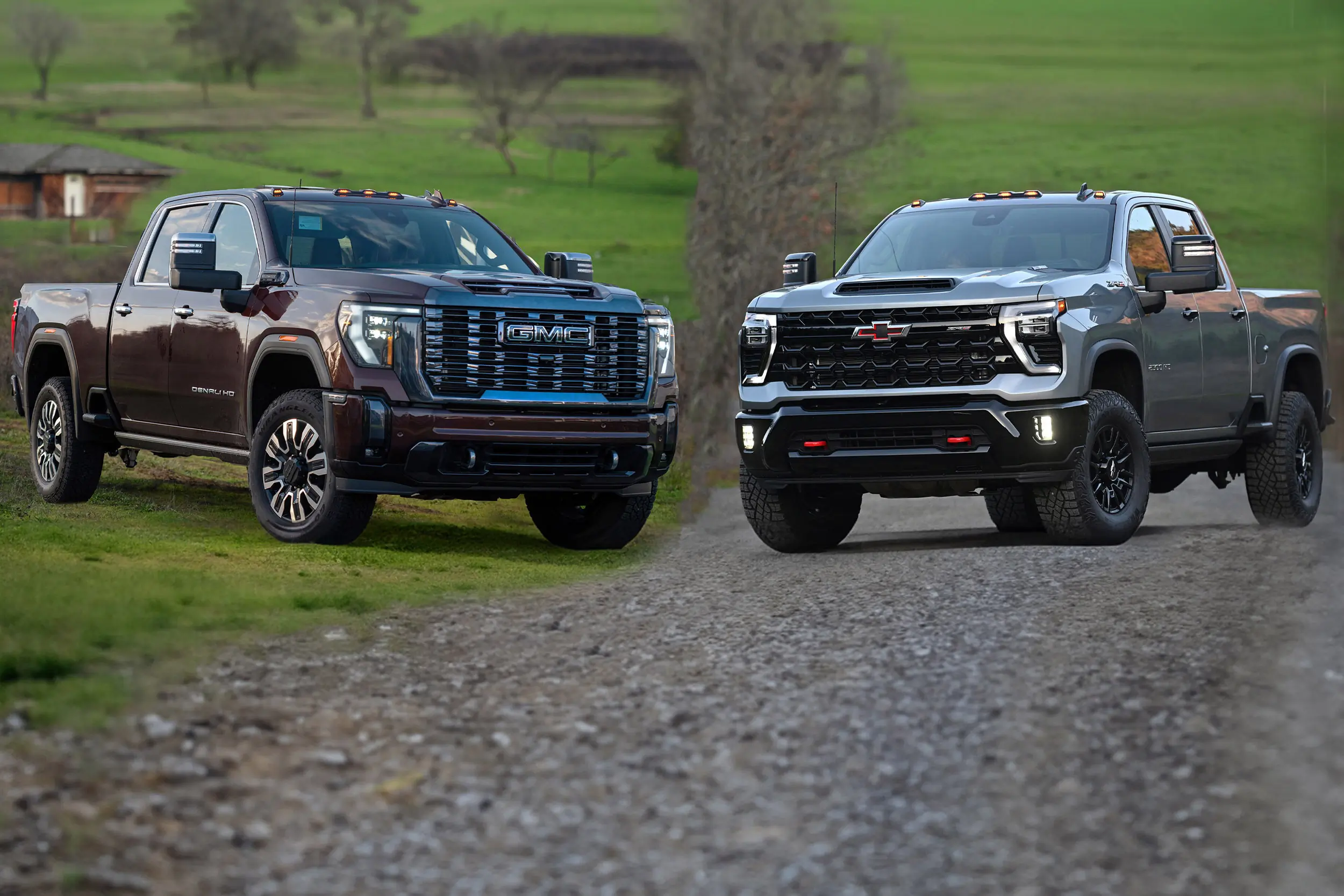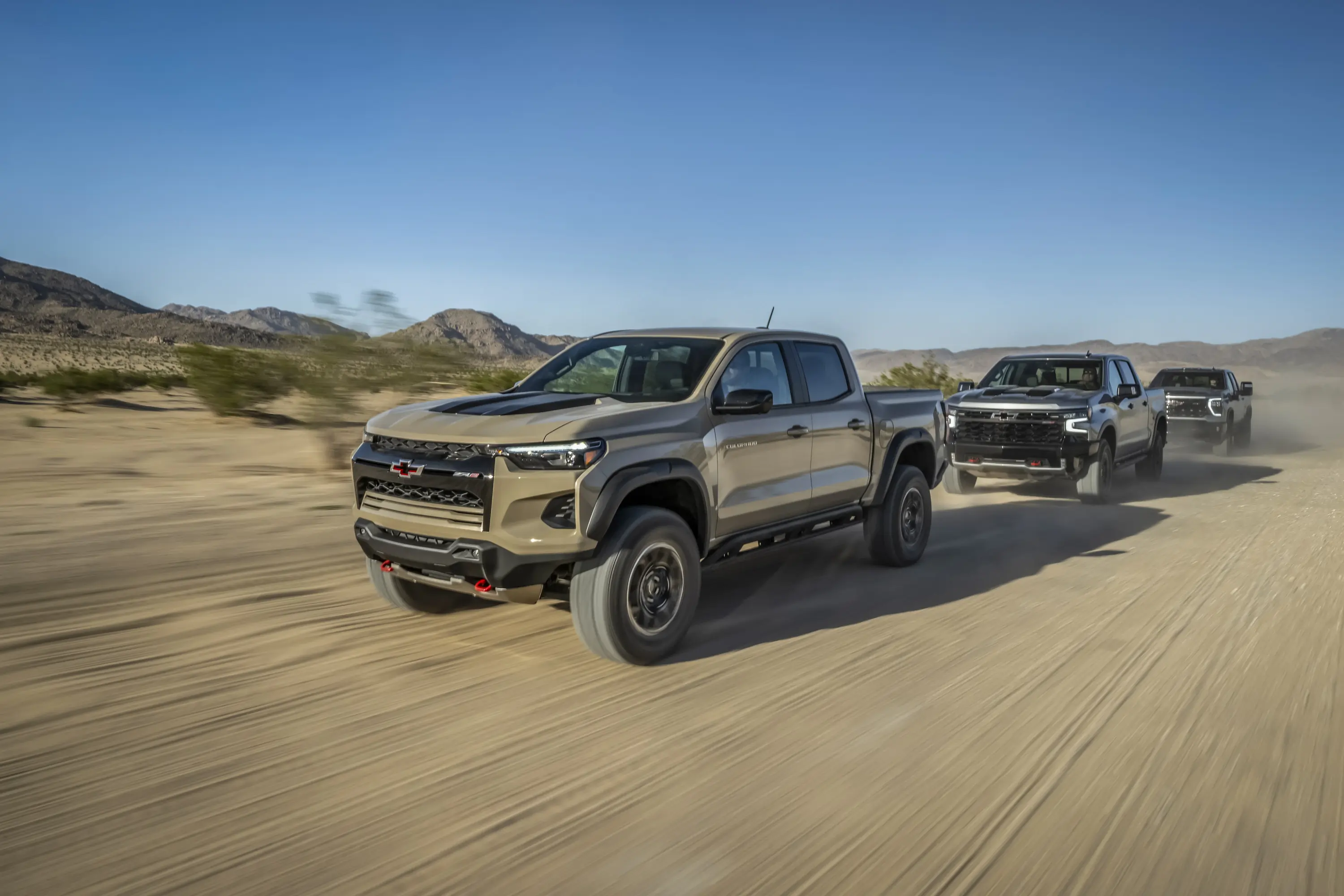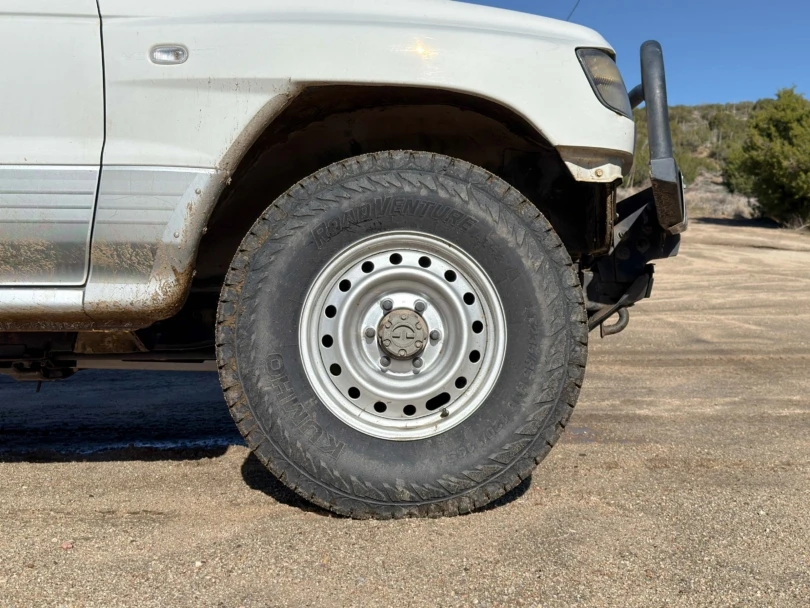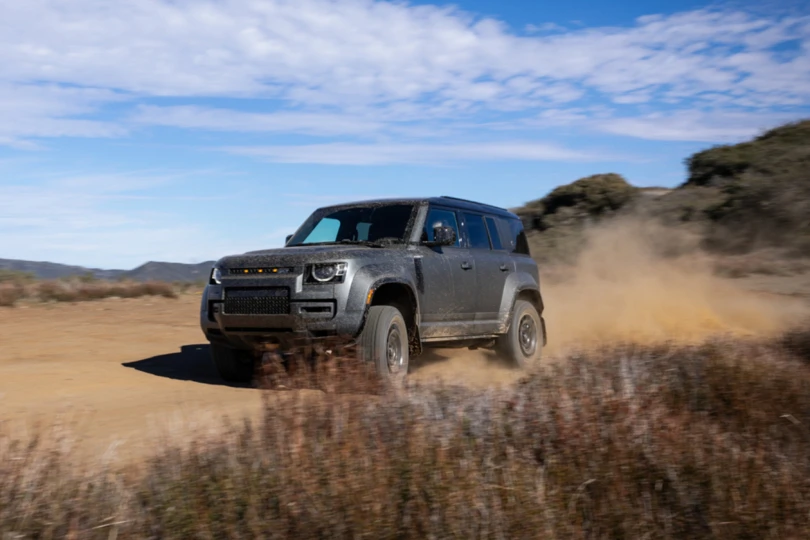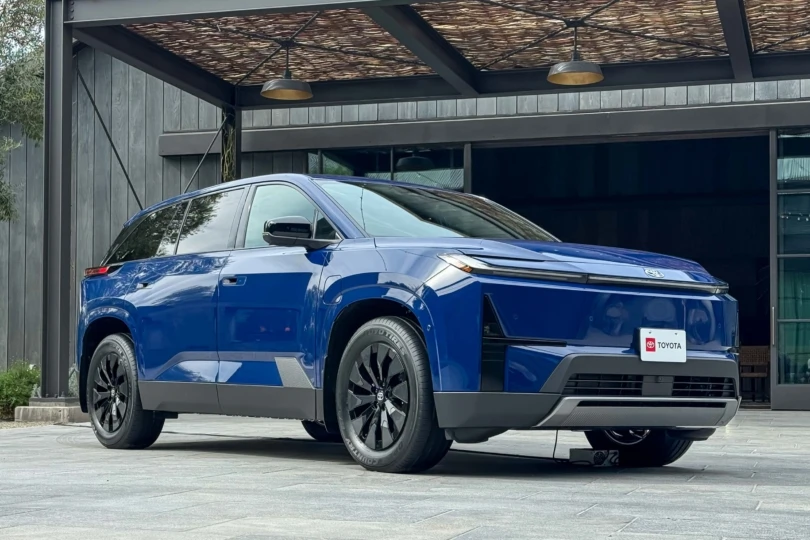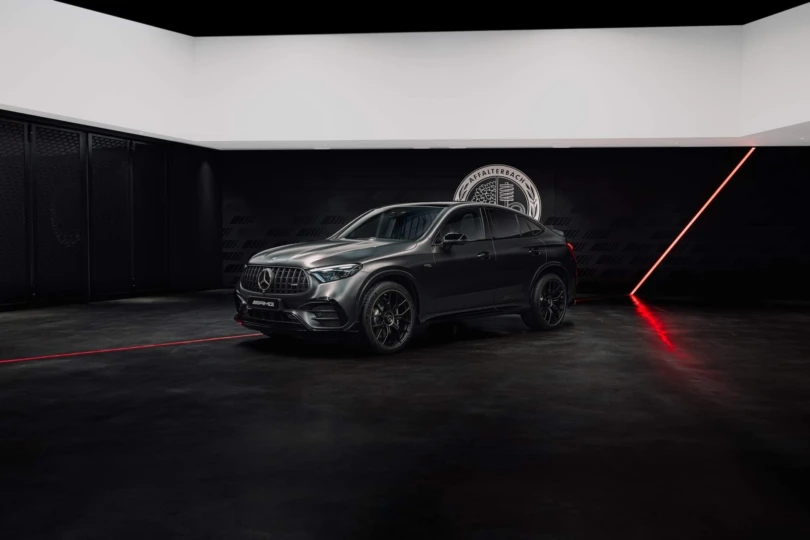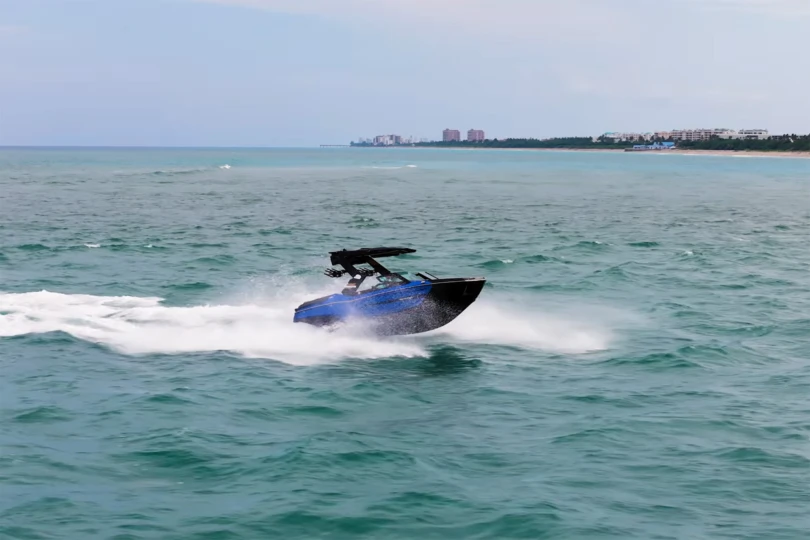In the world of pickups, the GMC Sierra and Chevrolet Silverado are like paternal twins within the General Motors automotive family. They share the same automotive DNA — being assembled in the same facilities and sharing the same chassis, running gear, engines, transmissions, interior layout, and, up until 2019, the same sheet metal. Remove the grilles and badges, and the two pickups are pretty much the same, save for a few variants over the years in engine offerings and interior trim.
Like twins, life’s experiences over time and individual pursuits usually change each one’s looks and persona. Since the early 1900s, GMC‘s persona has always catered to the more upscale pickup buyers in commercial and corporate businesses, while Chevrolet targeted working-class, blue-collar users.
The Evolution of Badge Engineering
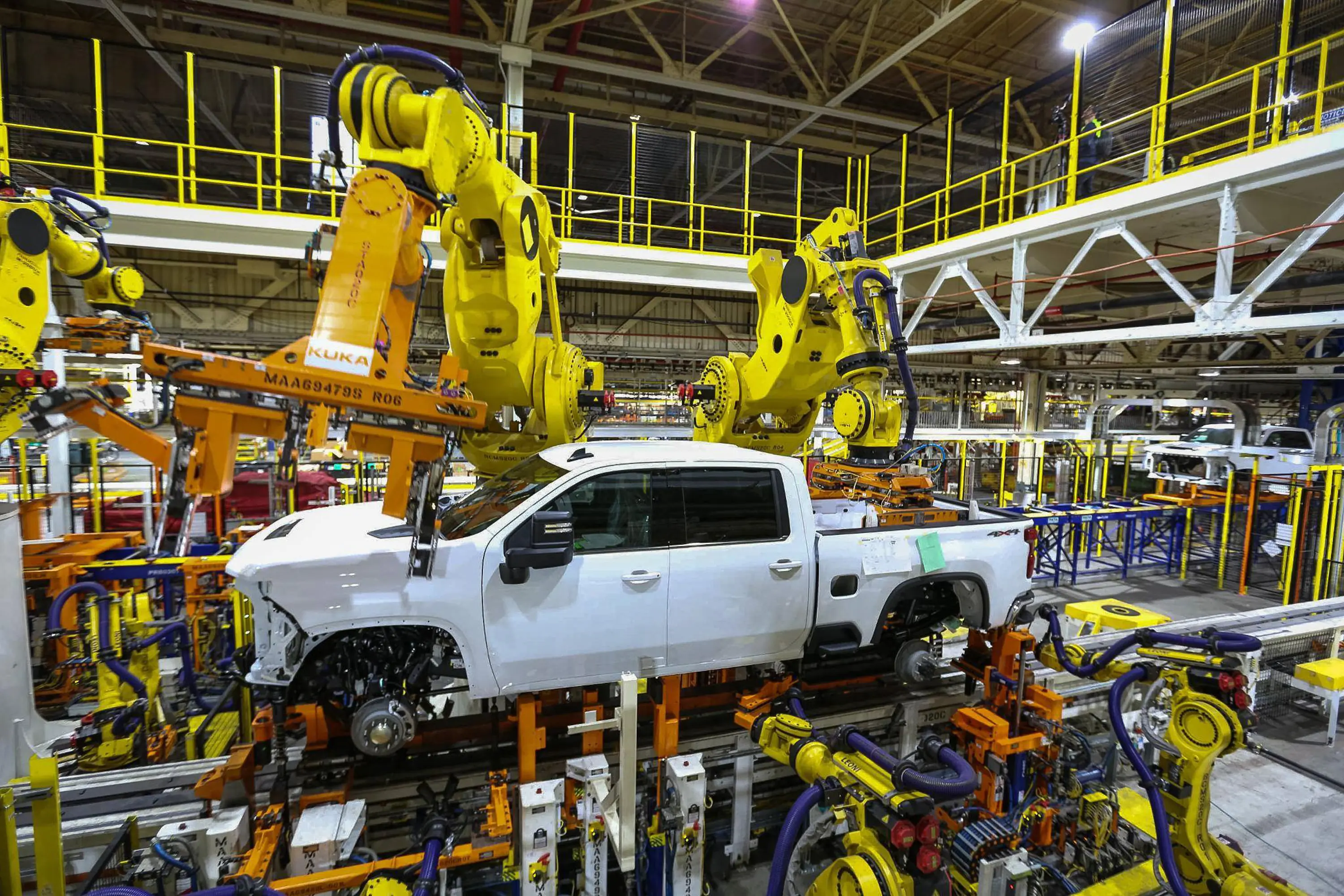
These two iconic General Motors (GM) companies changed what was once just trim levels built on the shared GMT800 C/K chassis to become their own pickup brands (the Sierra in 1987 and the Silverado in 1998). This change opened the doors for each to slowly take on greater individuality to better target their favorite markets.
The GM pickup twins took a step further apart in 2019 when GMC’s design and engineering teams used the latest generation of pickups to further the distinction between the two brands.
Much of the “badge engineering” between the Silverado and Sierra still exists today. The 2024 heavy-duty GMC Sierras and Chevrolet Silverados are still built side-by-side in the same final assembly plant (Flint, Mich.) on the same GMT T1XX platform using the same drivetrains. But their external appearance and the way they are outfitted give each a very distinctive look and feel.
The only shared body parts now are the rear doors and roof panel. The body, tailgate, and bed are different. And, while the interiors share the same physical layout, the way they are trimmed out has also taken different directions and levels of luxury.
GM’s Plush Heavy Haulers

A prime example of these changes in persona between the newest generation of GM’s HD four-wheel-drive pickups is GMC’s flagship 2024 Sierra HD Denali Ultimate and Chevrolet’s 2024 Silverado 2500 HD ZR2. I had the opportunity to spend a week in each, driving them back-to-back. It’s not a perfect apples-to-apples comparison of these high-end GM 2500 series, but close enough to see how the “twins” are slowly setting themselves further apart with each generation.
“Chevy knows our HD customers tackle some of the toughest jobs,” says Sean Szymkowski, Senior Manager, Chevrolet Trucks Communications. “HD ZR2 is meant to continue serving those needs, while adding the capability to adventure into the trails on the weekend. It’s for those that want it all: work and play.”
“GMC draws a distinct customer that demands the capability to get the job done as well as the technology and refinements to go wherever their adventures take them in style,” adds Szymkowski. “In addition to the base capability, the GMC Sierra Denali Ultimate does this primarily with an unmistakable design, additional standard comforts, and purposeful technology.”
Duramax Diesel Dominating Power
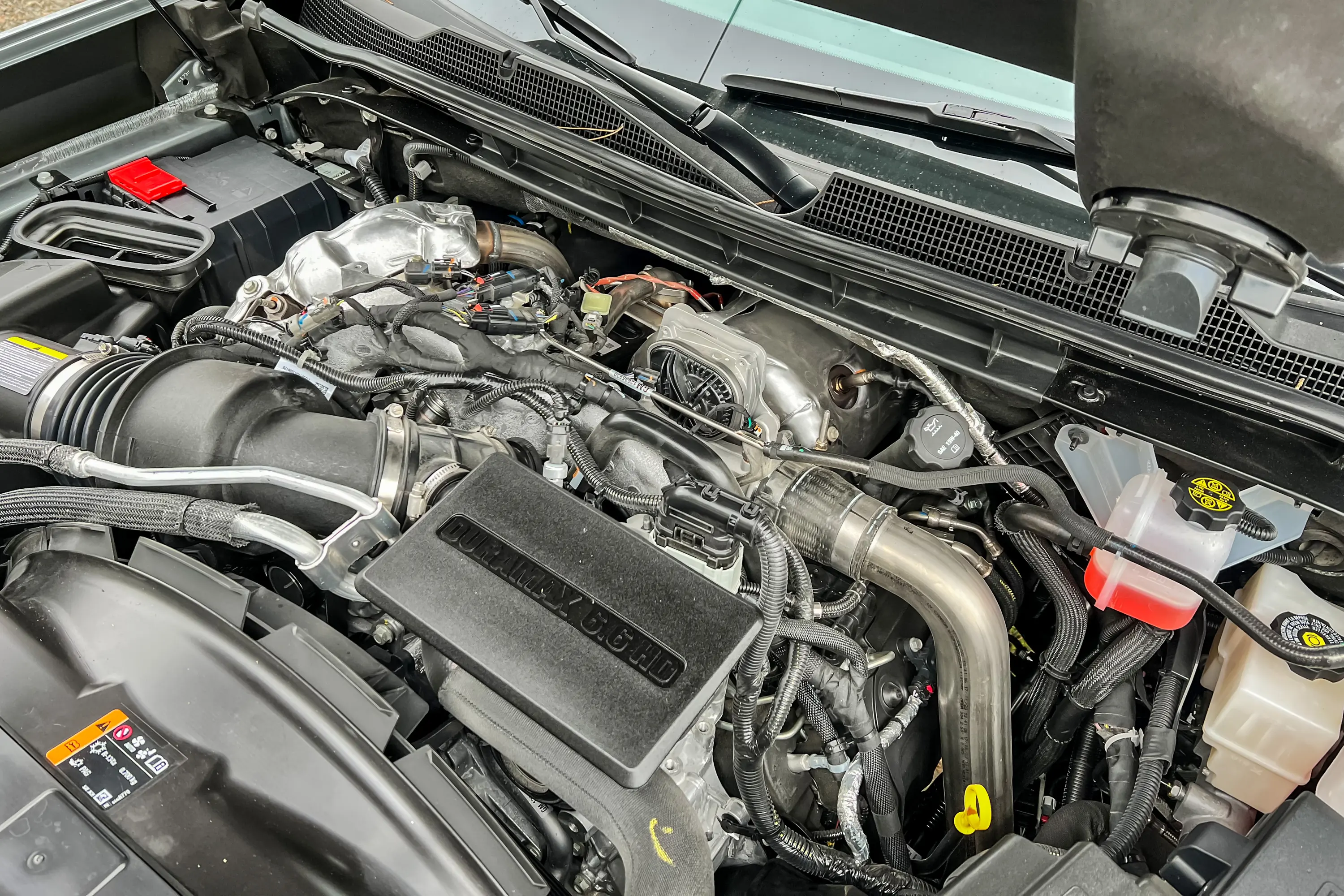



Performance-wise, the Silverado HD ZR2 and the Sierra HD Denali Ultimate I drove both came equipped with the 470-horsepower 6.6L Duramax V8 diesel, 10-speed Allison automatic, exhaust brake, and a 3.42 axle ratio. This is a strong combination with a maximum tow rating of 18,500 pounds for conventional tow-behind trailers and 18,100 pounds towing gooseneck or fifth-wheel trailers.
Those tow ratings accommodate the majority of needs encountered by business owners towing equipment as well as typical blue-collar buyers who are RVers hooking up to all but the largest of travel trailers, fifth wheels, and toy haulers.
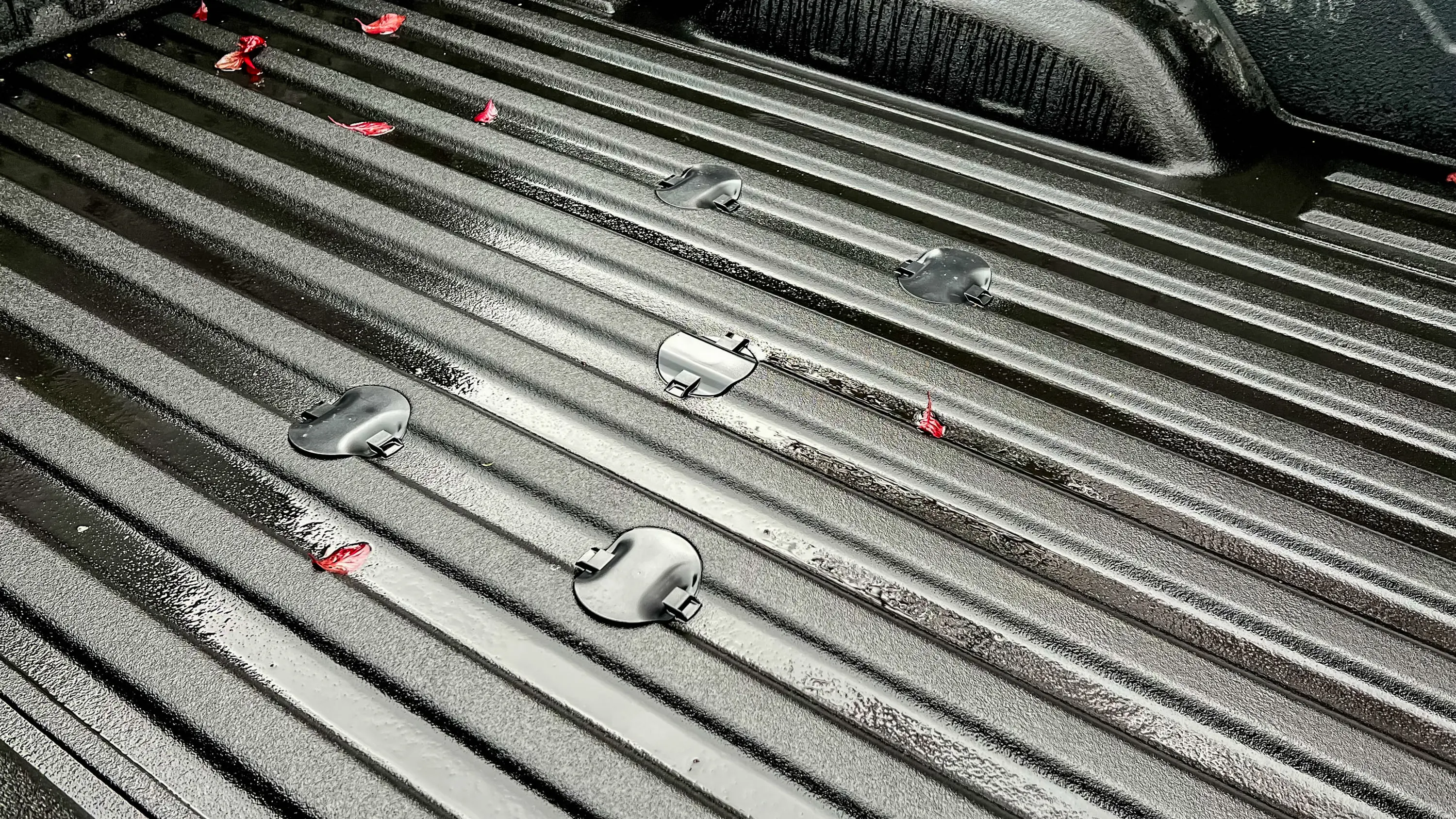



The difference between the two trucks in this area is that the diesel V8 is standard in the Sierra HD Denali Ultimate, while it’s a $9,500 option for the Silverado HD ZR2, which comes standard with the Allison mated to a 401-horsepower 6.6L gas-engine V8. For reference, the 6.6L gas engine is rated at 16,000 pounds conventional and 18,070 pounds for gooseneck or fifth-wheel towing.
High-Tech Safety & Electronics
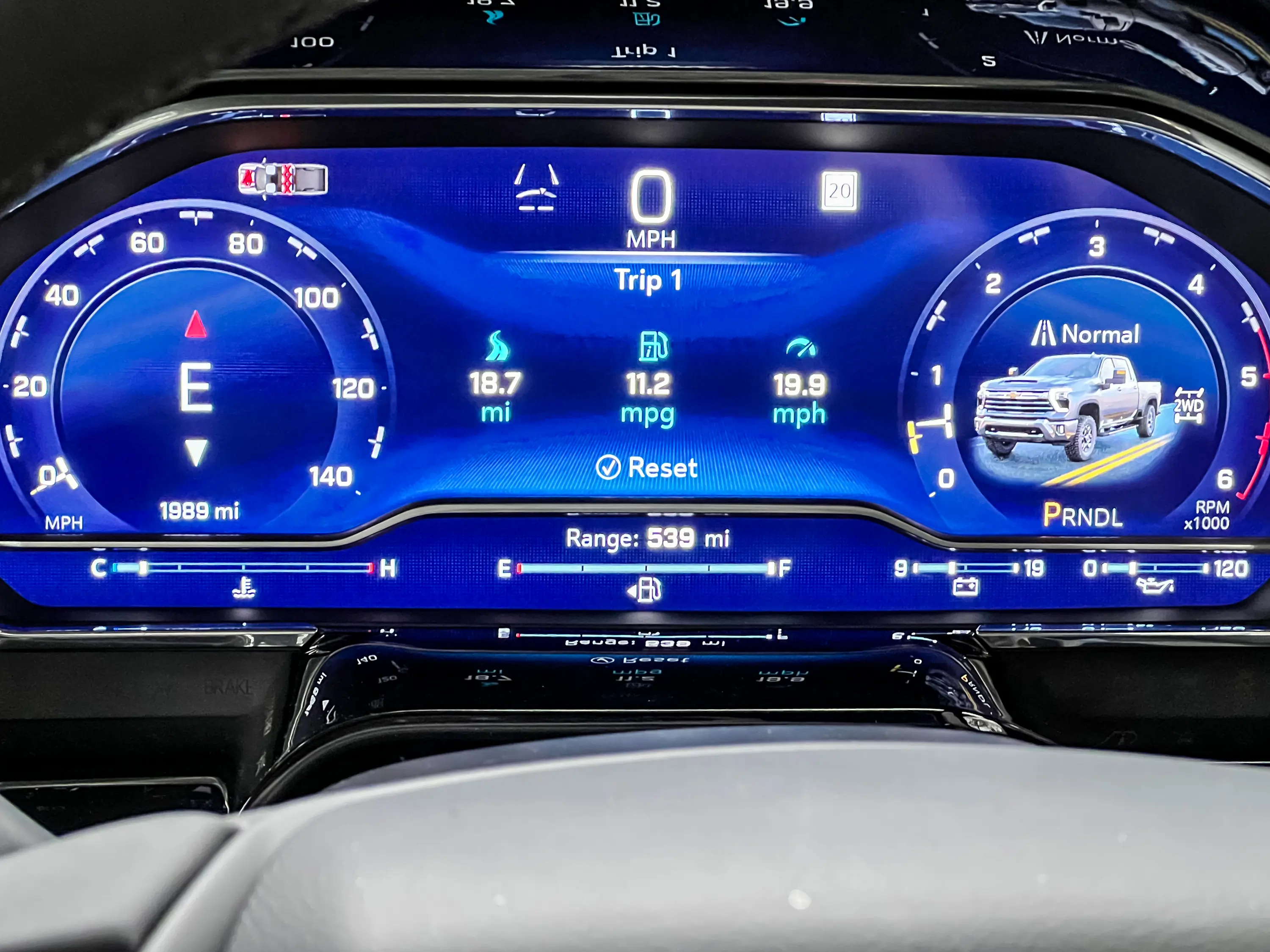



When it comes to towing and driving safety, both the ZR2 and Denali Ultimate come loaded with a long list of the latest technology as standard features. They both have a huge 13.4-inch-diagonal infotainment color touchscreen monitor in the middle of the dash with Google built-in.
The monitor virtually eliminates any blind spots around these big pickups via a vast array of HD surround-view cameras, bed and hitch views, plus automatic proximity monitoring, warning, and braking systems.
Both pickups offer head-up (HUD) displays, but the Denali’s 15-inch color version is standard while it’s part of the optional $1,775 “Technology Package” in the ZR2. The big HUD allows you to see a wide variety of vehicle and navigation information projected on the windshield so the driver never has to take their eyes off the road ahead.
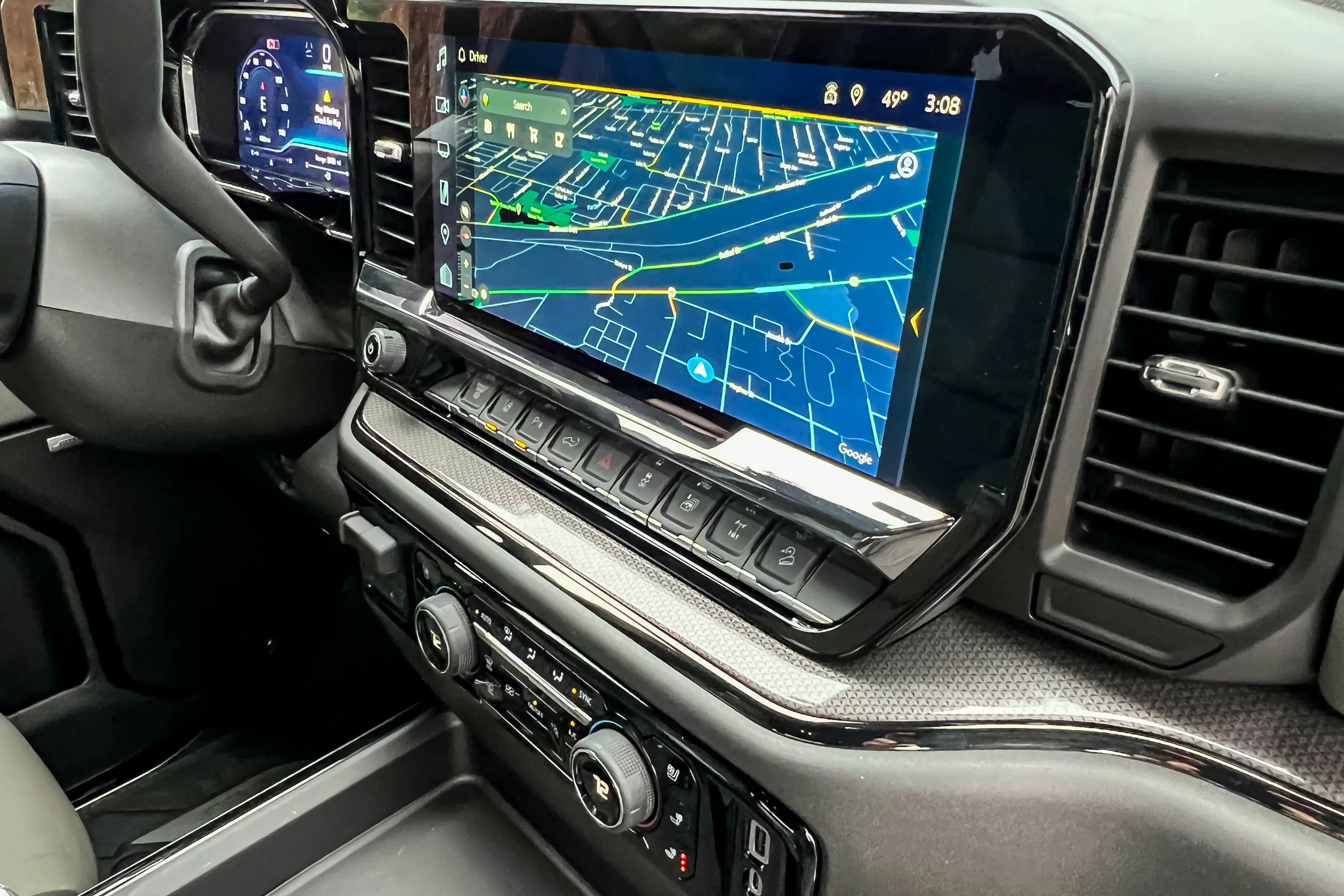



Both trucks also come with the newest in connectivity technology for Bluetooth, Android, and Apple systems. Their sound systems are Bose Premium Series, with a Kicker audio system in the Denali Ultimate’s MultiPro tailgate.
Ultimate Seating Comfort
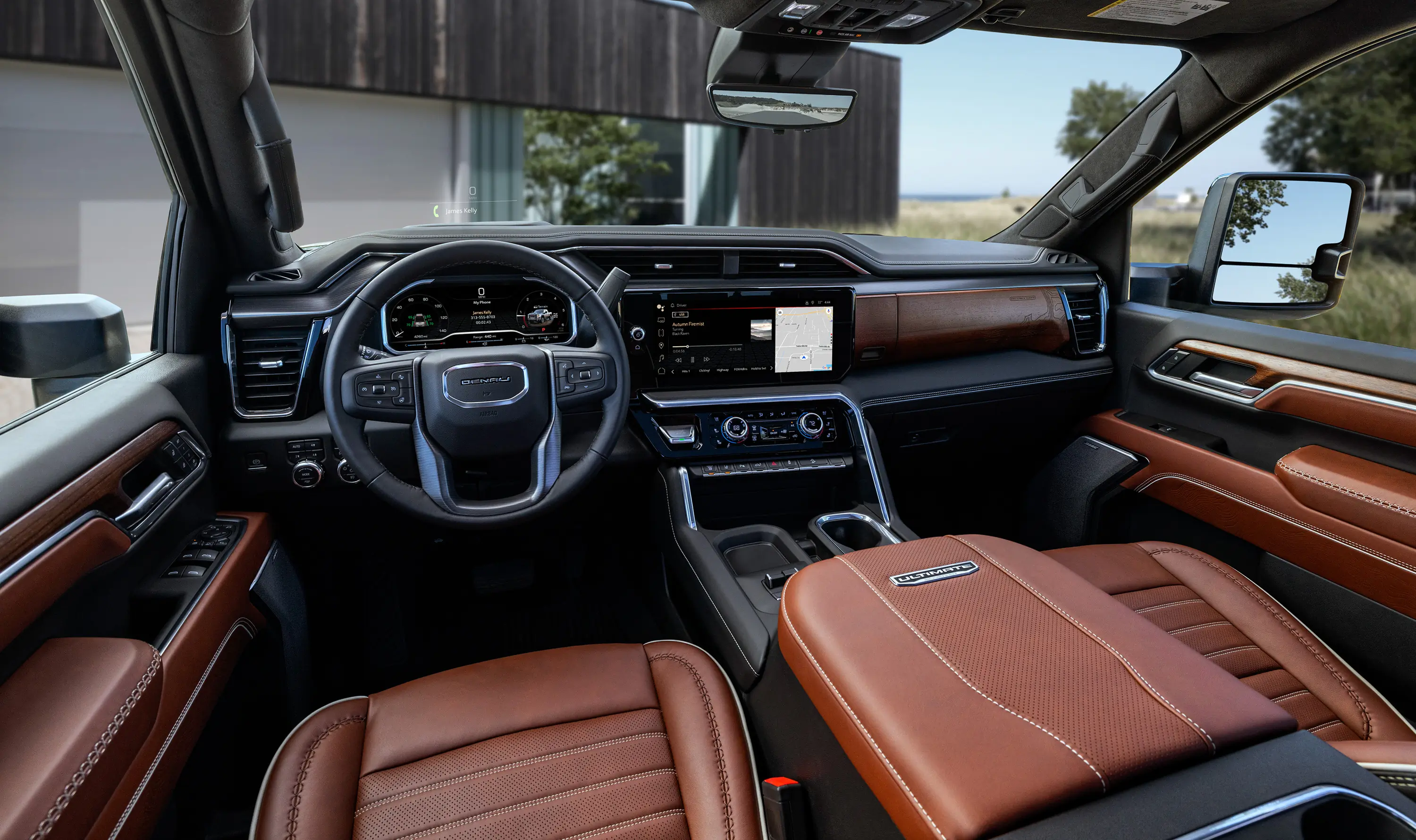



Seating comfort is another area where the Denali Ultimate is a big step up from the ZR2. While the interior of the Silverado is really nice and the heated 10-way power driver/passenger seats ARE quite comfortable, it doesn’t compare to the Sierra Denali Ultimate. In fact, there’s probably no other pickup on the market that has the same level of luxuriousness as that found in GMC’s flagship HD.
The Ultimate’s full-grain leather appointments, stitching, and open-pore Paldao wood that adorns the interior trim, make the occupants feel like they are truly traveling in the lap of luxury. Then there’s the 16-way power-adjustable, heated, and massaging front seats that take it over the top. If you are into taking long road trips, the Denali Ultimate is the pickup to drive.
The Denali also comes standard with a power sunroof, LED-lighted power-retractable running boards (aka assist steps), and a MultiPro tailgate. Those are options ($2,295 for the steps, $995 for the sunroof, and $260 for the MultiFlex tailgate) in the ZR2.
Tailgates: A Step Up
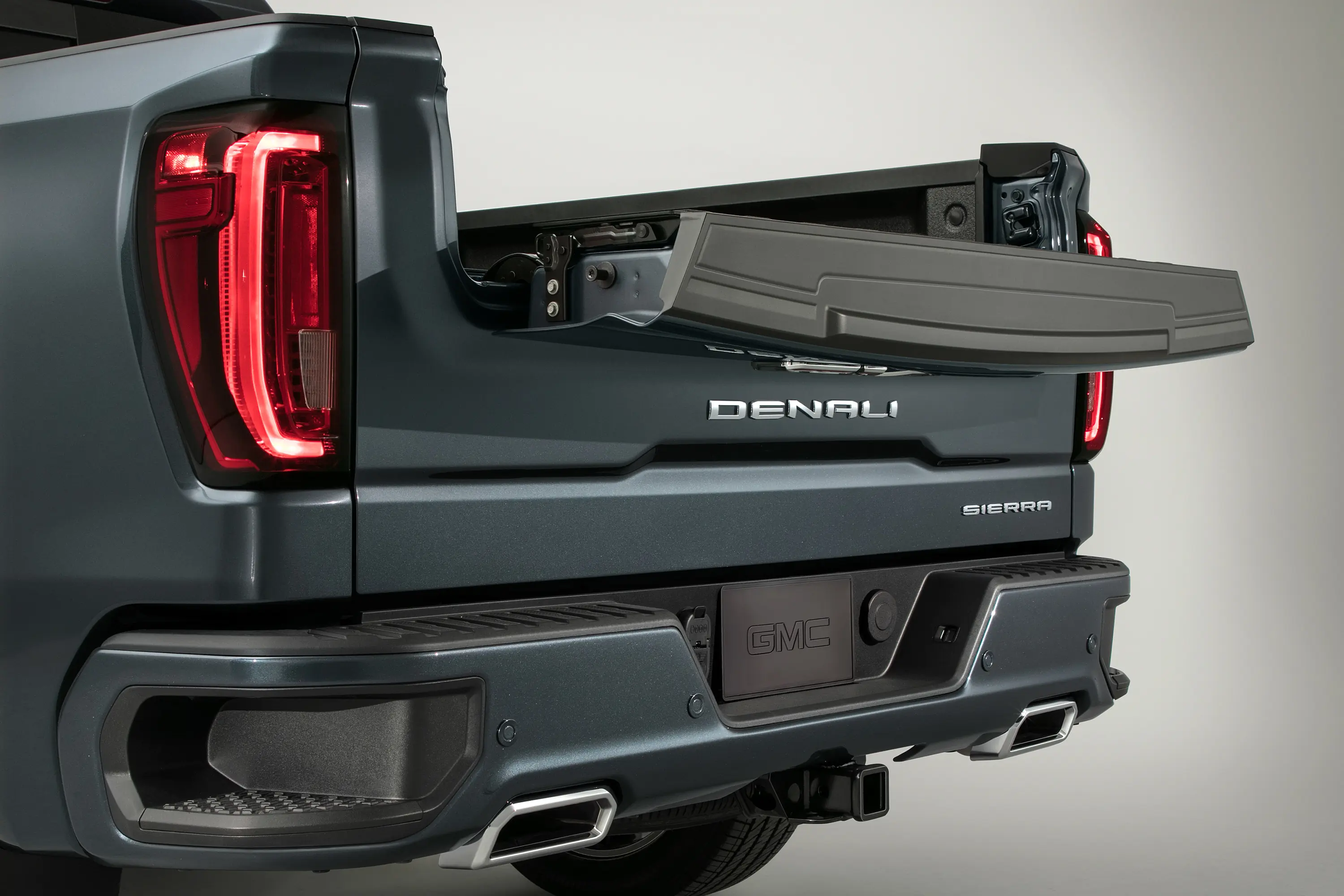



The two tailgates are one of the distinctions that set the GM HD pickups apart from competitors. The Silverado’s MultiFlex tailgate, which came out in 2021, is a six-function design that helps improve loading, unloading, and stepping in and out of the bed.
The Sierra’s MultiPro tailgate is very similar, but with the addition of a weather-resistant 100W Kicker sound system integrated into the dropdown bed step section.
These multifunction tailgates can be opened and lowered by pressing a release button on the tailgate itself, a button on the instrument panel, or a button on the remote key fob.
2024 GM HD Trucks: Tires Make a Difference
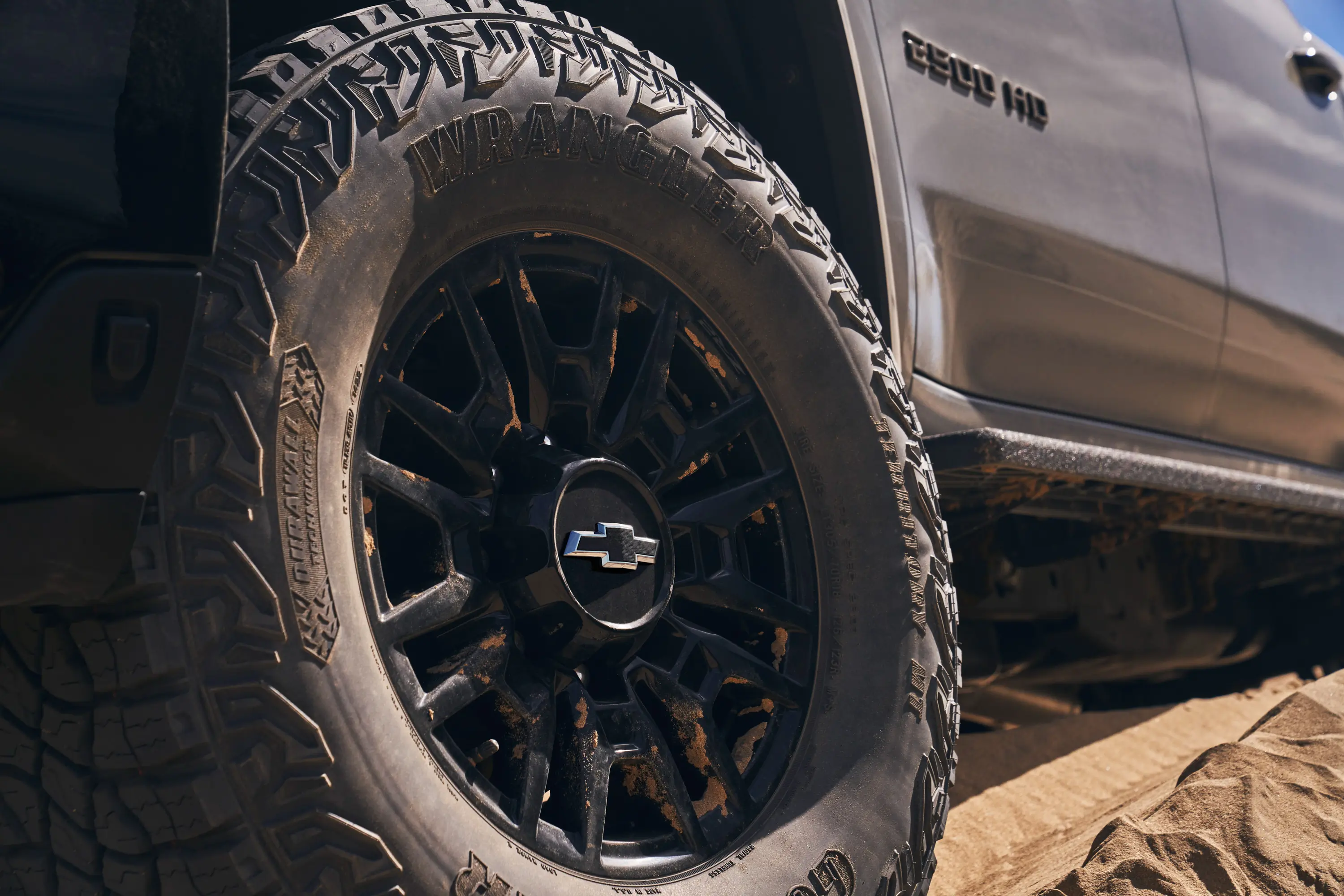



When it comes to overall ride and handling, especially if any off-pavement, off-road, or running country backroads will be the norm, my preference is the Silverado HD ZR2. The suspension package and tire/wheel combo is about as perfect as one will find right off the showroom floor.
The Silverado HD ZR2 suspension package, which includes race-developed Multimatic DSSV shocks, a 1.5-inch lift, and 18-inch wheels wrapped in LT305/70R18 Goodyear Wrangler Territory MT tires, is by far the best on-/off-road suspension GM has come out with to date. It’s smooth, and it transitions instantly to changes in the road surface, dips, ruts, washboard, and uneven ground. And, it handles the weight of the big 2500 HD with ease.
The Sierra HD Denali Ultimate comes equipped with the X31 Off-Road Package that includes skid plates and twin-tube Rancho Shocks. The Rancho shocks do a good job of damping the ride, but they are far from achieving the performance of the Multimatic suspension under the Silverado.
Another difference I felt is the 20-inch wheels and 34-inch LT275/65R20 Goodyear Wrangler all-terrain tires under the Denali Ultimate, which give a slightly firmer ride than you get with the ZR2 because of the shorter tire sidewall.
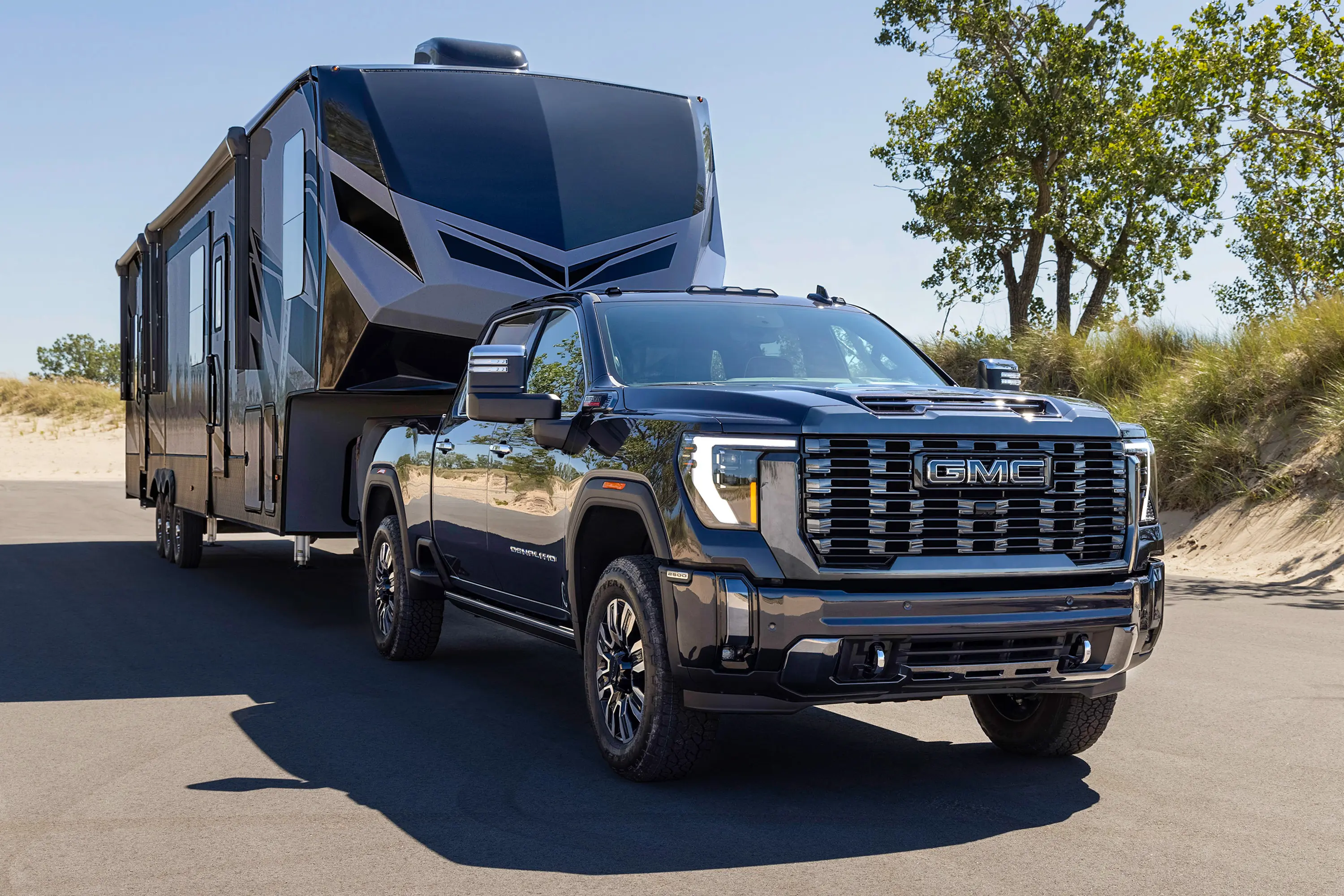



The Denali Ultimate’s ride and handling are better suited for towing travel trailers and hauling slide-in truck campers over the open road than the ZR2. But for day-to-day use as a blue-collar pickup, one that’s used to pull equipment trailers and haul heavy loads during the week, and pull a big toy hauler on the weekends and vacations, the ZR2 is the better choice.
Surprisingly, the sound of the aggressive 35-inch Goodyear tires on both trucks never intrudes into the cab. And, the awesome amount of torque from the Duramax diesel allows you to put the power instantly to the ground on road or off.
GM HD Truck: Fuel Economy & Range
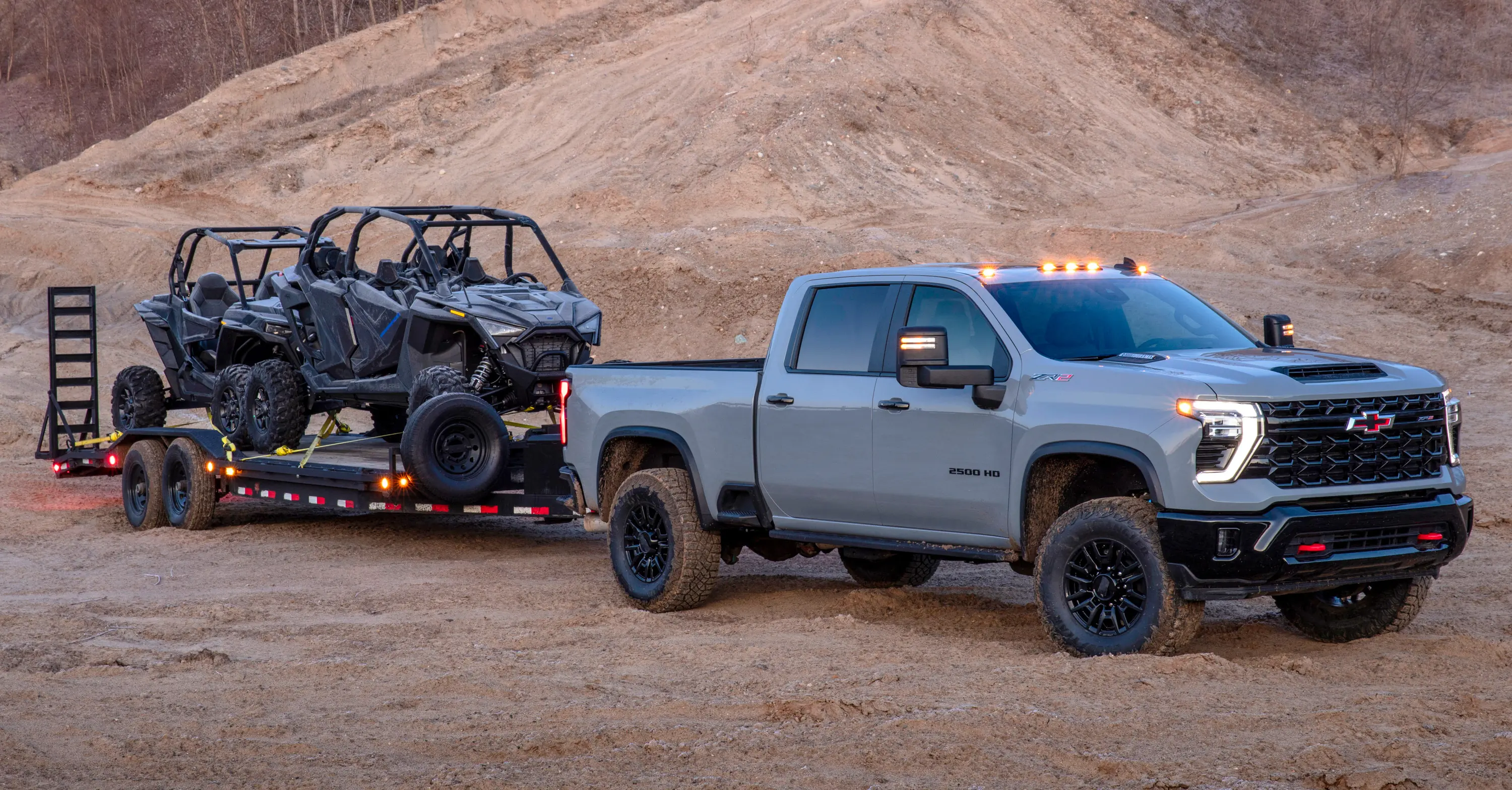



When it comes to fuel economy, it’s a dead heat from what I observed driving each more than 300 miles on interstates, city streets, and country roads. Both pickups, unloaded, averaged 18-19 mpg on the open road cruising at 65-70 mph. City mileage was close to 15 mpg. I was surprised the Silverado HD ZR2’s larger and more aggressive MT tires didn’t seem to negatively impact the fuel economy over the Sierra HD Denali Ultimate’s AT tires.
Those fuel economy numbers give the GM 2500 HDs a range of about 540-660 miles between fill-ups, as they both have 36-gallon fuel tanks.
HD ZR2 & Denali Ultimate Sticker Shock
Both of these 2024 GM 2500 HD 4x4s are prime examples of how advanced automotive technology has progressed in the most recent generation of GMC and Chevrolet heavy-duty pickups. Their safety features, power, comfort, and utility value have never been greater. Neither has their price.
The window sticker on the 2024 Silverado 2500 Crew Cab ZR2 4WD I drove was $86,805, including destination charges and options. The GMC Sierra 2500 4WD Denali Ultimate’s window sticker came in at $94,835.
If you can get past the sticker shock, either one of these big GM pickups would deliver the ride, handling, and performance surpassing nearly every other contender.
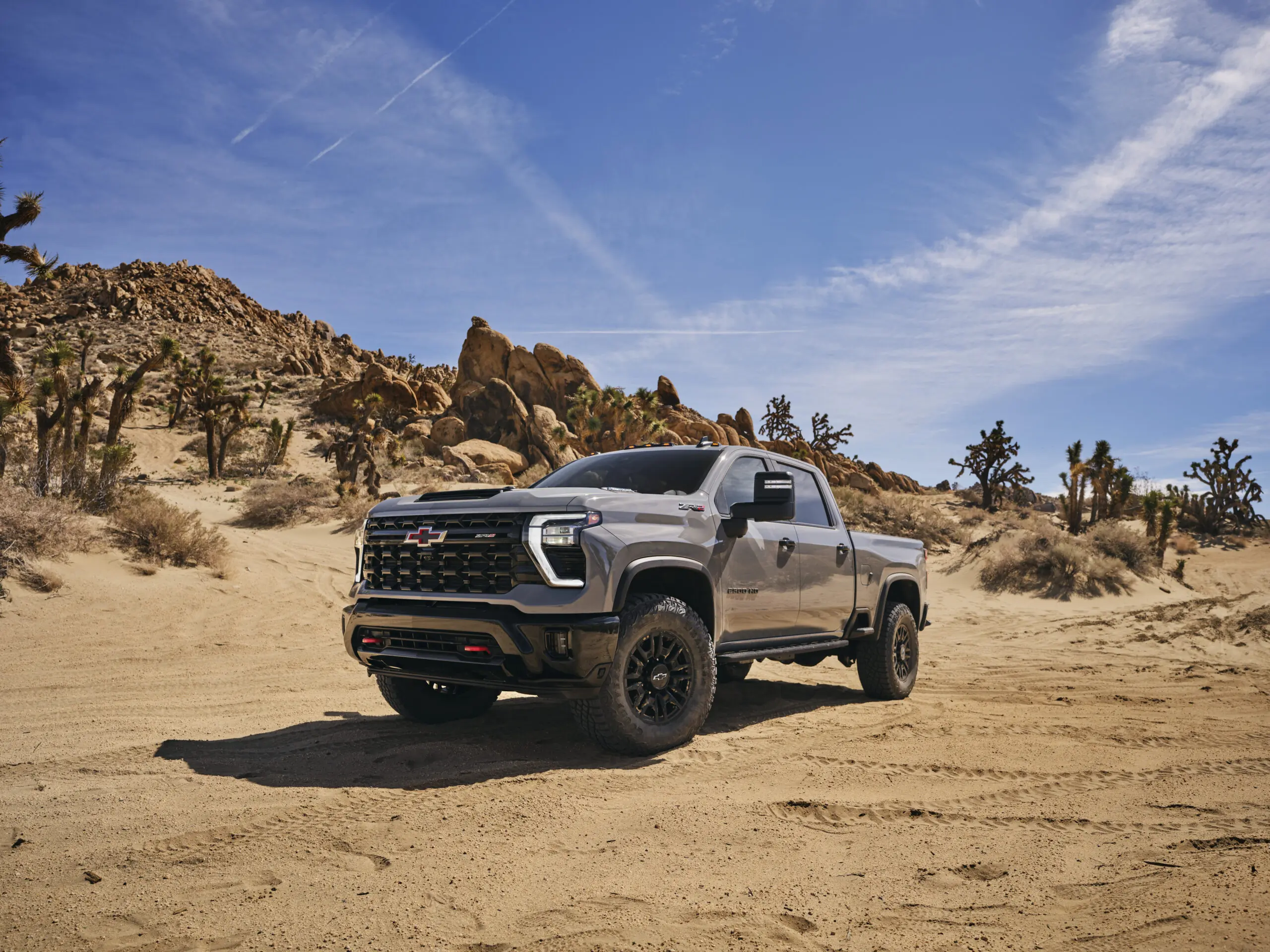



2024 GM HD Pickup Specifications
- 2024 Chevrolet Silverado 2500 ZR2: $86,805
- 2024 GMC 2500 Sierra Denali Ultimate: $94,835
- Vehicle type: Crew Cab Short Bed 4×4
- Engine: 6.6L Duramax Diesel V8
- Horsepower: 470 hp @ 2,800 rpm
- Torque: 975 lb.-ft. @ 1,600 rpm
- Transmission: Allison 10-speed automatic
- Axle ratio: 3.42 with electronic-locking rear diff
- Observed fuel economy: Hwy: 18-19 mpg / City: 14-15 mpg
- Fuel tank capacity: 36.0 gal.
- Range: 500-680 mi.
- Tires: LT275/65R20 Goodyear all-terrain (Ultimate); LT305/70R18 Goodyear mud terrain (ZR2)
- Max towing capacity: 18,500 lbs. (conventional); 18,100 lbs. (5th-wheel/gooseneck)
- Max payload capacity: 3,440 lbs. (ZR2); 2,590 lbs. (Ultimate)
- Ground clearance: 10.4” (ZR2); 10.1” (Ultimate)
- Curb weight: 7,410 lbs.
- GVWR: 10,850 lbs. (ZR2); 10,000 lbs. (Ultimate)
- Length: 250.8″
- Body width: 81.8”
- Height: 82.7” (ZR2); 79.8” (Ultimate)
- Wheelbase: 159”
- Turning radius: 26’
- Length 250”
- Bed length: 6’9”
